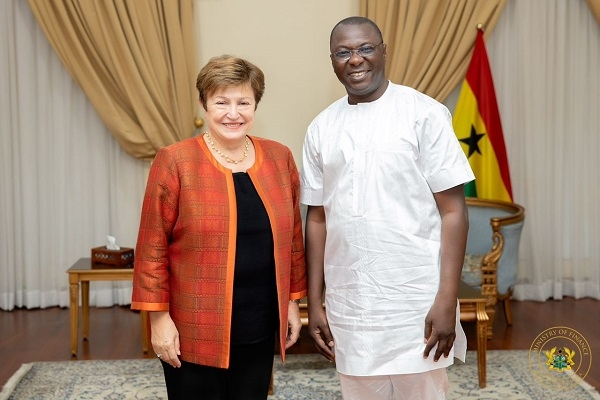The Executive Board of the International Monetary Fund (IMF) has ended its second review of Ghana’s US$3 billion three-year Extended Credit Facility (ECF) programme.
This latest review on Friday was a critical appraisal of the country’s programme with the Bretton Woods institution, which was approved back in May 2023+.
The completion of this review meant an immediate disbursement of roughly $360 million, bringing Ghana’s total disbursements under the arrangement to about $1.6 billion.
In a meeting, Deputy Managing Director Kenji Okamura announced, “Ghana’s performance under its ECF-supported reform programme has been generally strong.
The authorities’ strategy aimed at restoring macroeconomic stability and reducing debt vulnerabilities is paying off, with clear signs of stabilisation emerging.”
“Ghana’s economic reform program had indeed been delivering on its objectives. After facing severe economic and financial pressures in 2022, the IMF-supported programme provided a credible anchor for the government.
It helped in adjusting macroeconomic policies and implementing reforms to restore macroeconomic stability and debt sustainability. The foundations for higher and more inclusive growth were being laid.
“These efforts are paying off,” Okamura noted. “Growth is proving more resilient than initially expected, inflation is declining at a faster pace, and both fiscal and external positions are improving.”
Despite some delays, Ghana has made significant progress on key structural reform milestones. The Ghanaian authorities were also moving forward with their comprehensive debt restructuring.
On June 11, 2024, they reached an agreement with Ghana’s Official Creditor Committee (OCC) under the G20’s Common Framework on a Memorandum of Understanding (MoU), formalising an agreement in principle on debt treatment.
Kenji Okamura highlighted, “This agreement on a debt treatment, consistent with program parameters, provided the necessary financing assurances for the second review under the ECF Arrangement to be completed.”
Moreover, Ghana’s primary fiscal balance had improved by over 4 per cent of GDP last year.
The authorities were committed to further advancing fiscal consolidation, aiming for primary fiscal surpluses of ½ per cent of GDP this year and 1½ per cent of GDP in 2025.
“These efforts are underpinned by reforms to bolster revenue mobilisation and streamline non-priority expenditures,” Okamura explained.
“The authorities are also expanding social protection programs to mitigate the impact of fiscal adjustment on the most vulnerable.”
The Bank of Ghana (BoG) maintained a prudent monetary policy stance to sustain a rapid reduction in inflation and took steps to rebuild international reserves.
They had also strengthened measures to preserve financial sector stability, ensuring the implementation of banks’ recapitalization plans.
The Ministry of Finance had begun recapitalising state-owned banks in line with available resources.
“Ambitious structural reforms to create an environment more conducive to private sector investment, and to enhance governance and transparency are gaining prominence,” Okamura said.
“These will be key to boosting the economy’s potential and underpin sustainable job creation.”
Looking ahead, sustaining macroeconomic policy adjustment and reforms was essential, especially during the upcoming electoral period.
Kenji Okamura concluded, “Perseverance in macroeconomic policy adjustment and reforms is crucial to fully restore macroeconomic stability and debt sustainability while fostering a sustainable increase in economic growth and poverty reduction.”
Ghana’s journey was far from over, but the progress made under the IMF-supported program was a testament to their determination and commitment to economic stability and growth.





































